We tested the two best AI phones from Samsung and Google to see if they’ll actually improve your daily life… Will the AI smartphone revolution leave Apple behind?
It’s been a little over a year since the launch of ChatGPT made the world AI-crazy.
So it’s no surprise that tech giants are now looking to integrate and promote the capabilities of artificial intelligence into all their new gadgets – from laptops to TVs.
But it’s smartphones that look set to become one of the biggest AI battlefields. Rumor has it that Apple’s next iPhone will have a ton of new AI-powered features.
Samsung and Google have also gone all-in on AI in phones, with their latest S24 Ultra and Pixel 8 Pro (this year and late last year respectively) both being heavily marketed for their AI capabilities.
Does AI actually make your daily life better?
I tested Google’s flagship Pixel 8 Pro against Samsung’s top-end S24 Ultra to see how its AI features compare and whether they’re actually useful in everyday life.
Both the Samsung S24 Ultra and the Pixel 8 Pro are going big in the field of AI (photo Rob Waugh)
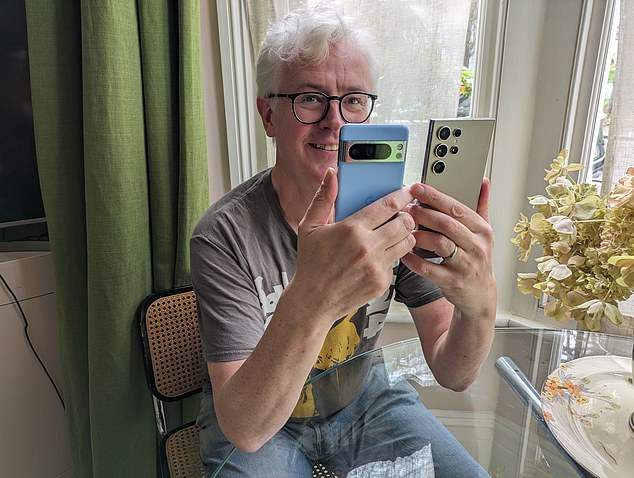
The two phones both offer advanced AI features (Pic Rob Waugh)
GOOGLE’S PIXEL
Google’s Pixel phones have an edge in AI, with the tech giant already adding AI to features like the Recorder app in previous Pixel phones, which transcribes voice conversations in real time using AI.
I’ve been using this for years: the voice transcripts aren’t as “clean” as those of competing transcription services like Otter.ai, but as a journalist it’s very useful to be able to see transcripts in real time.
It means that you can see that the recorder is ‘getting’ the call and can also assess whether you have sufficient information to complete a call, for example.
Google’s Photos app also comes with AI tools, including Magic Eraser (which can automatically remove photo bombers from your images.
It’s a lot of fun, but sometimes it messes up, for example when you take away a cyclist but not his/her bike.
Magic Editor lets you move and resize people within images, with generative AI ‘filling in’ the background: it’s impressive, dealing with resizing and moving a shot of my son in a room covered in optical illusion with stripes.
I’m still not sure if I would use the results in a photo album.
Much more useful is the Best Take app, which lets you take a number of similar photos and select the ‘best’ frame so people’s eyes are all open and kids don’t frown: it’s easy to use and works well.
This year’s big Pixel innovation is the AI wallpapers, which let you create strange and sometimes alarming wallpapers using prompts like ‘a painting of robots in expressionist style’ – it’s pretty crazy, but my kids are avid fans.
HOW DOES SAMSUNG’S S24 ULTRA STACK?
In terms of hardware, Samsung’s S24 Ultra outperforms Pixel, with a top-of-the-line Snapdragon 8 Gen 3 chip – but how does it stack up as a relative newcomer to phone-based AI?
Samsung’s AI wallpaper feature works well, but is almost identical to the one on the Pixel: That said, since I started using it, I’ve never gone back to non-AI wallpapers on the phone.
Like other AI image makers, you enter a series of words or clues (but here you’re limited to a preset range of words), and the AI creates a completely unique background based on the input.
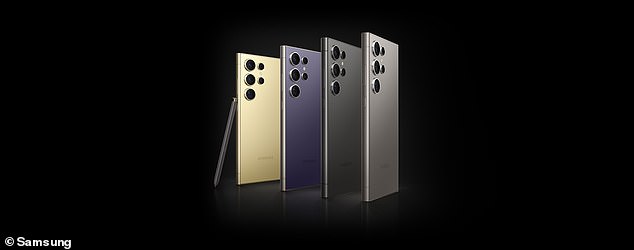
Samsung’s S24 Ultra technically outperforms the Pixel 8 Pro, but at a price
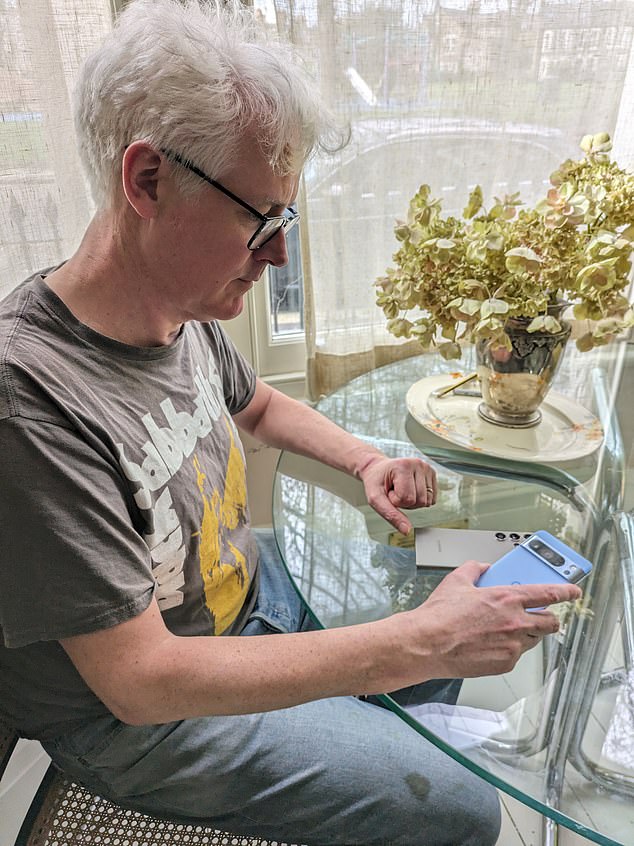
Both the Samsung S24 Ultra and the Pixel 8 Pro are going big in the field of AI (photo Rob Waugh)
Samsung’s generative AI photo editing is quite impressive for a newcomer, but slightly glitchier than Google’s Magic tools used (for example, I found there were some strange bits in the background after removing myself from a photo).
Circle to Search is unique to Samsung and very cool: you press and hold the Home button to search using an image cropped from literally any app (you can even pause videos and select an image).
You tap the screen or use the S24’s S Pen to circle what you want to search, and it uses AI smarts to search for it via Google.
The results aren’t too far off from what you get with Google’s Lens, but the ability to select and search is new and cool (and feels very sci-fi).
Samsung’s AI transcription app works well and delivers clean transcriptions, but lacks the live on-screen functionality of Google’s.
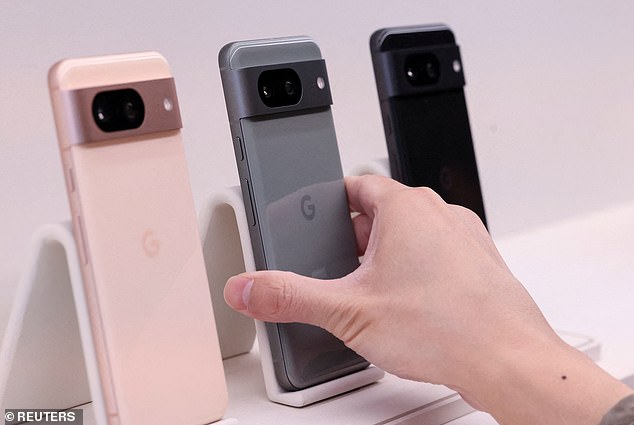
Does AI actually make your daily life better? I tested Google’s flagship Pixel 8 Pro
The ‘live translate’ feature built into the phone app also has a high cool factor, translating from one language to another live on screen and handling my schoolboy German instantly.
If for some reason you needed to call someone without a shared language, you could easily do so (although I’m hard-pressed to imagine a situation where this could happen).
There’s also an AI-driven website summary feature, like the one featured on Pixel, which reduces news stories to a few paragraphs (although given that most web pages are quite short and to the point anyway, I’m not clear how useful it is).
Samsung’s Notes app is also packed with AI features with the option to auto-format, bullet and summarize notes (something not available on Pixel), and it’s effective and would come in handy if you have a lot of takes minutes.
Samsung is clearly playing catch-up here, but the features are quite good for the first time.
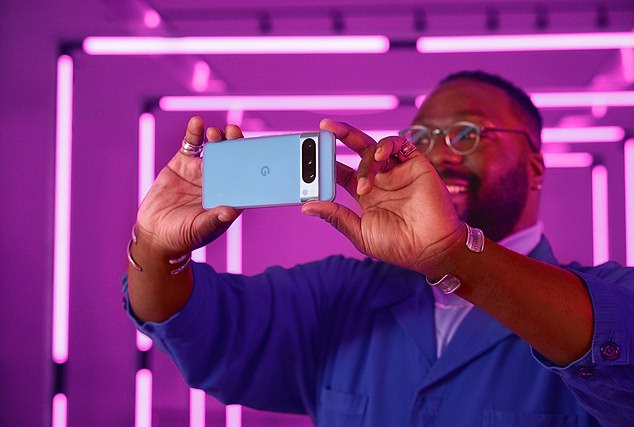
Does AI actually make your daily life better? I tested Google’s flagship Pixel 8 Pro
The two phones have very different propositions: Samsung’s is ridiculously powerful with extremely high-quality components, but with a price to match ($1299), while Google’s offers great value for money at $999.
Google is ahead on the AI front (for now), but Samsung is very much breathing down its neck with a host of interesting and potentially useful features.
What also seems certain is that AI will make up a big part of phones in the future — Apple has bought 21 AI startups since 2017, according to PitchBook, and it seems likely that this year’s September iPhone crop will include AI will place in the foreground.
